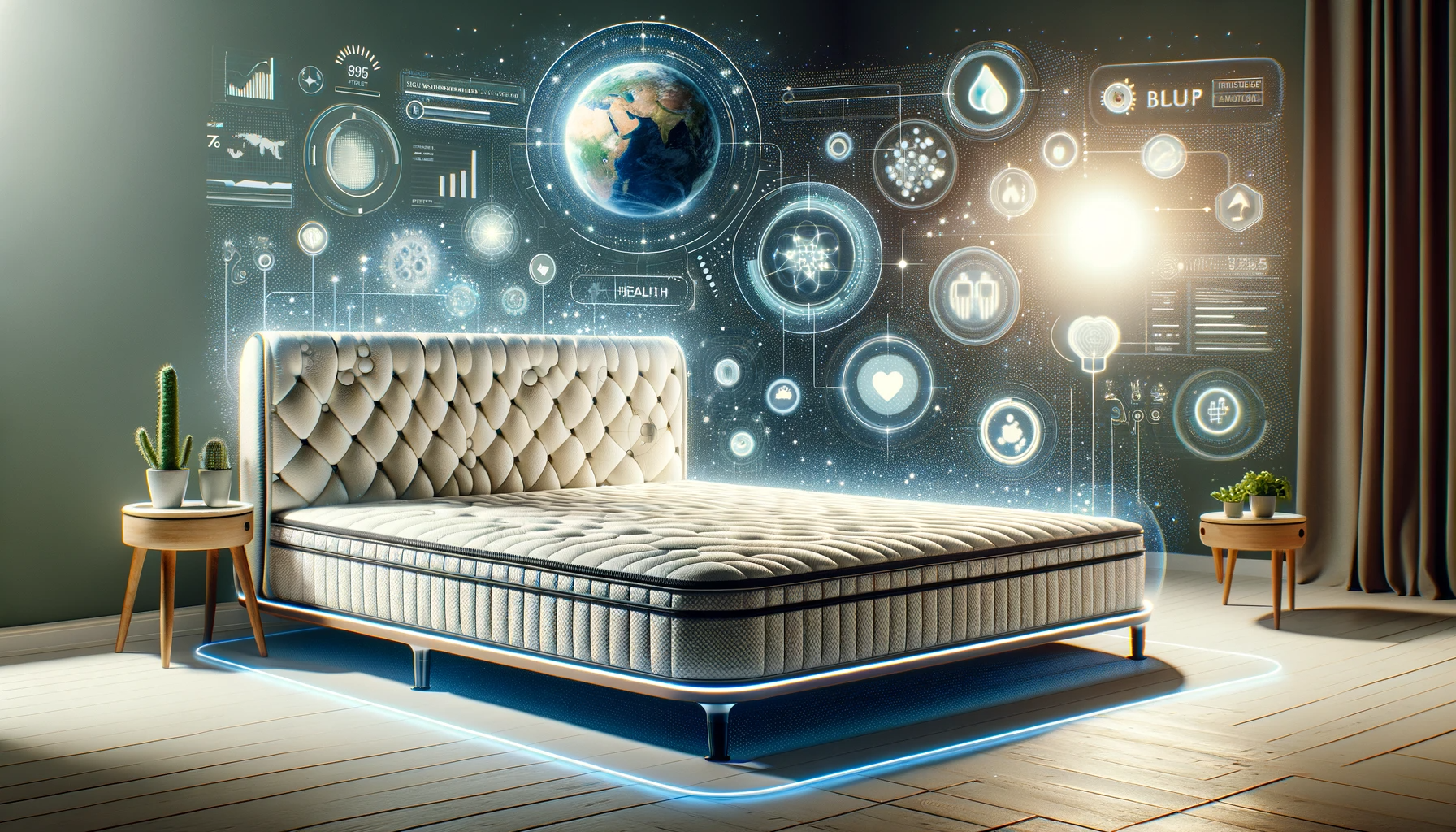
The Evolution and Future of Sleep Technology: How Customization is Changing the Way We Sleep
Share
Introduction
In a world that never sleeps, the relentless pursuit of a restful night's slumber has become a paramount concern for many. Amidst buzzing smartphones, 24/7 connectivity, and increasingly busy lifestyles, the value of a good night's sleep has escalated. It's not just about closing our eyes anymore; it's about the quality of rest we receive. This surge in sleep awareness has ushered in a new era in sleep technology, particularly in the realm of mattress innovation.
The mattress, often overlooked, is the cornerstone of a restful sleep. Its evolution from a mere sleeping surface to a sophisticated sleep-enhancing tool reflects our growing understanding of the importance of sleep. In this era of customization, the one-size-fits-all approach to mattresses is becoming a thing of the past. As we stand at the cusp of technological advancements, it's worth exploring how bespoke mattresses are not just a luxury, but a necessity for the modern sleeper.
From the simple straw-filled mats of ancient times to the plush, technology-infused sleep surfaces of today, the journey of mattress development is a fascinating tale of innovation and human ingenuity. As we delve deeper into the world of sleep technology, we uncover the layers of research, design, and technology that converge to create the ultimate sleeping experience. This article will explore the evolution, current trends, and future possibilities in mattress technology, highlighting how personalization and innovation are reshaping the way we think about and experience sleep.
Historical Perspective: The Evolution of Mattress Technology
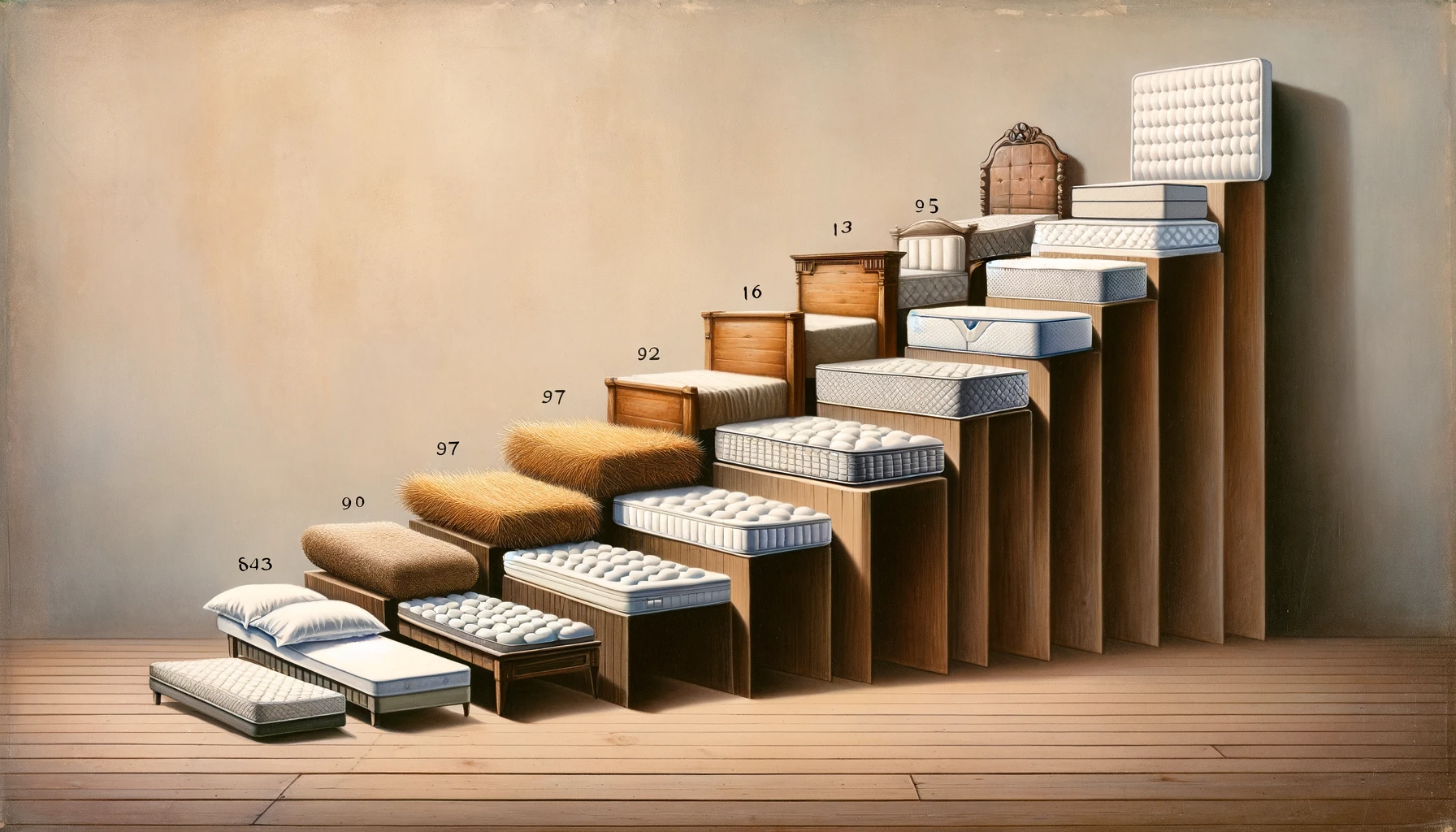
The story of mattress evolution is as old as civilization itself. From the rudimentary sleeping arrangements of ancient societies to the sophisticated designs of today, each era has contributed to the mattress's transformation.
Early Beginnings: Ancient civilizations, including the Egyptians, Romans, and Greeks, crafted the first mattresses using materials like straw, wool, and feathers. These were simple designs, aimed at elevating sleepers off the ground to avoid pests and dirt.
Industrial Revolution and Beyond: The 18th and 19th centuries marked significant advancements. With the industrial revolution, the introduction of spring mattresses changed the sleeping landscape. These innerspring mattresses were a leap forward in comfort and support, laying the groundwork for future innovations.
Mid-20th Century Innovations: The mid-20th century saw the rise of foam mattresses, a breakthrough offering more comfort and better body support. Latex foam, introduced in the 1930s, and memory foam, developed by NASA in the 1960s, were pivotal in this shift.
The Modern Era: Fast forward to today, and the mattress industry has seen a technological explosion. From reflex foam mattresses that offer excellent support and durability to CoolSense foam mattresses that regulate temperature for a cooler sleep, the focus has shifted to individualised comfort. The introduction of pocket sprung and hybrid mattresses also marks a significant step towards personalised sleep solutions, combining the traditional support of springs with the modern comfort of foam.
This historical context sets the stage for the current trends in sleep technology. As we have moved from one-size-fits-all solutions to more personalised options, the industry has shifted focus from mere functionality to an emphasis on enhancing overall sleep quality and health.
The Rise of Customization in Mattresses
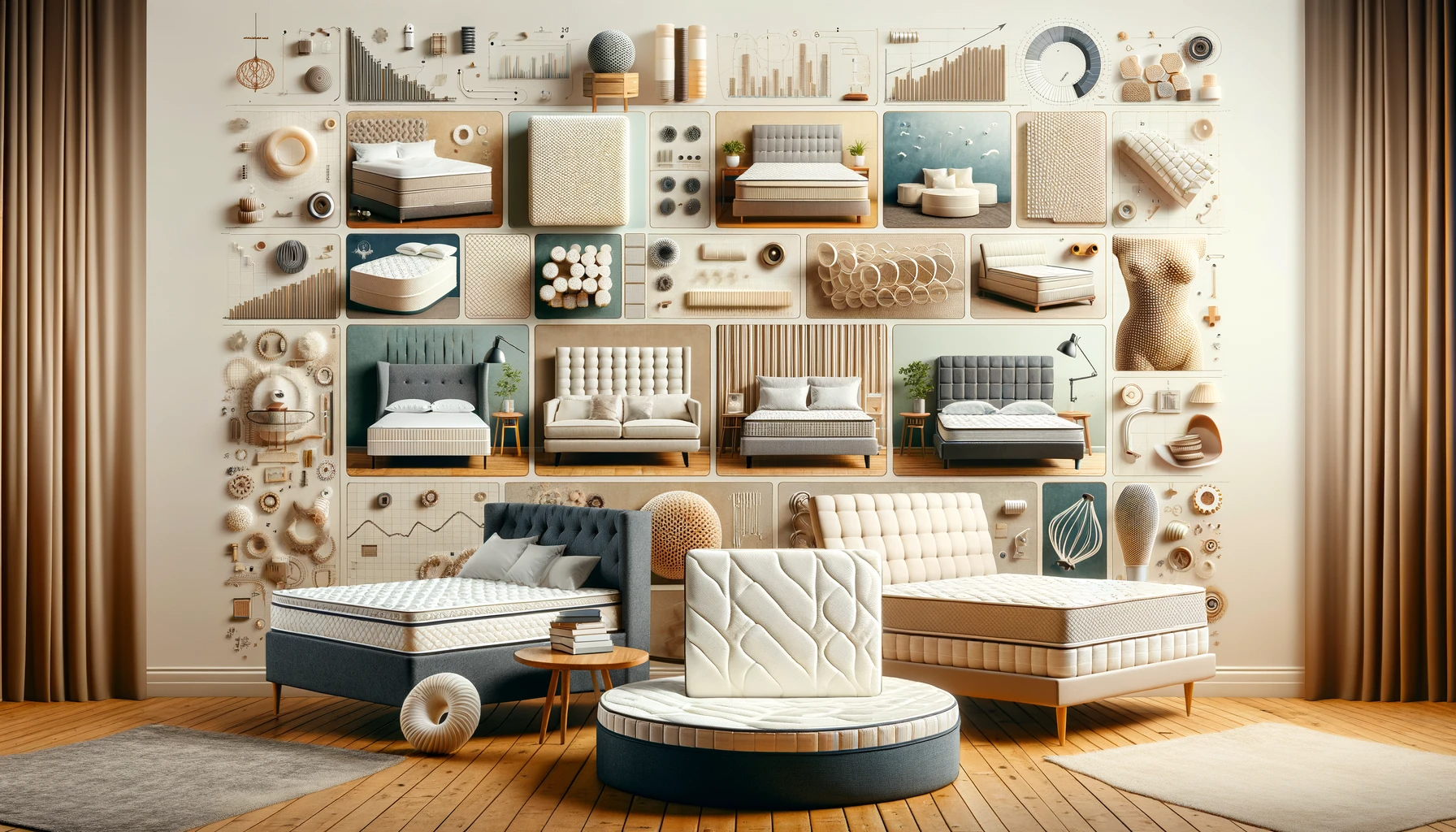
The mattress industry's shift towards customization reflects a broader trend in consumer goods: the desire for products tailored to individual preferences and needs. In an era where personalization reigns supreme, the one-size-fits-all approach is rapidly becoming obsolete.
Personalization as a Priority: Today's consumers seek products that cater to their unique lifestyles, and this demand for personalization has firmly taken root in the mattress industry. Customizable mattresses are not just about comfort; they are about creating a sleep environment that aligns with individual physical requirements, sleeping patterns, and health conditions.
Addressing Diverse Needs with Bespoke Solutions: Bespoke mattresses, crafted to suit specific preferences, represent a significant leap forward. Whether it's accommodating different body types, mitigating health issues like back pain, or catering to varying firmness preferences, custom mattresses offer a solution that standard mattresses cannot.
Technological Integration: The integration of advanced technologies in mattress design has been a game-changer. From memory foam that moulds to the sleeper's body, providing unparalleled support and comfort, to innovative materials like CoolSense foam that offer temperature regulation, the technology behind these mattresses is at the forefront of the industry's evolution. Hybrid mattresses, combining the traditional support of springs with the comfort of foam, exemplify this blend of innovation and customization.
The Consumer-Driven Shift: This move towards personalised mattresses is consumer-driven. As people become more aware of the importance of good sleep and its impact on overall health and well-being, the demand for mattresses that can be tailored to individual needs has soared. The industry has responded by introducing a range of options, from adjustable firmness levels to mattresses designed for specific sleep positions.
In summary, the rise of customization in the mattress industry is a response to a growing awareness of the importance of personalised sleep solutions. It's a trend that underscores the industry's commitment to evolving with consumer needs, prioritising comfort, health, and personalization in every stitch.
Technological Innovations in Mattress Design
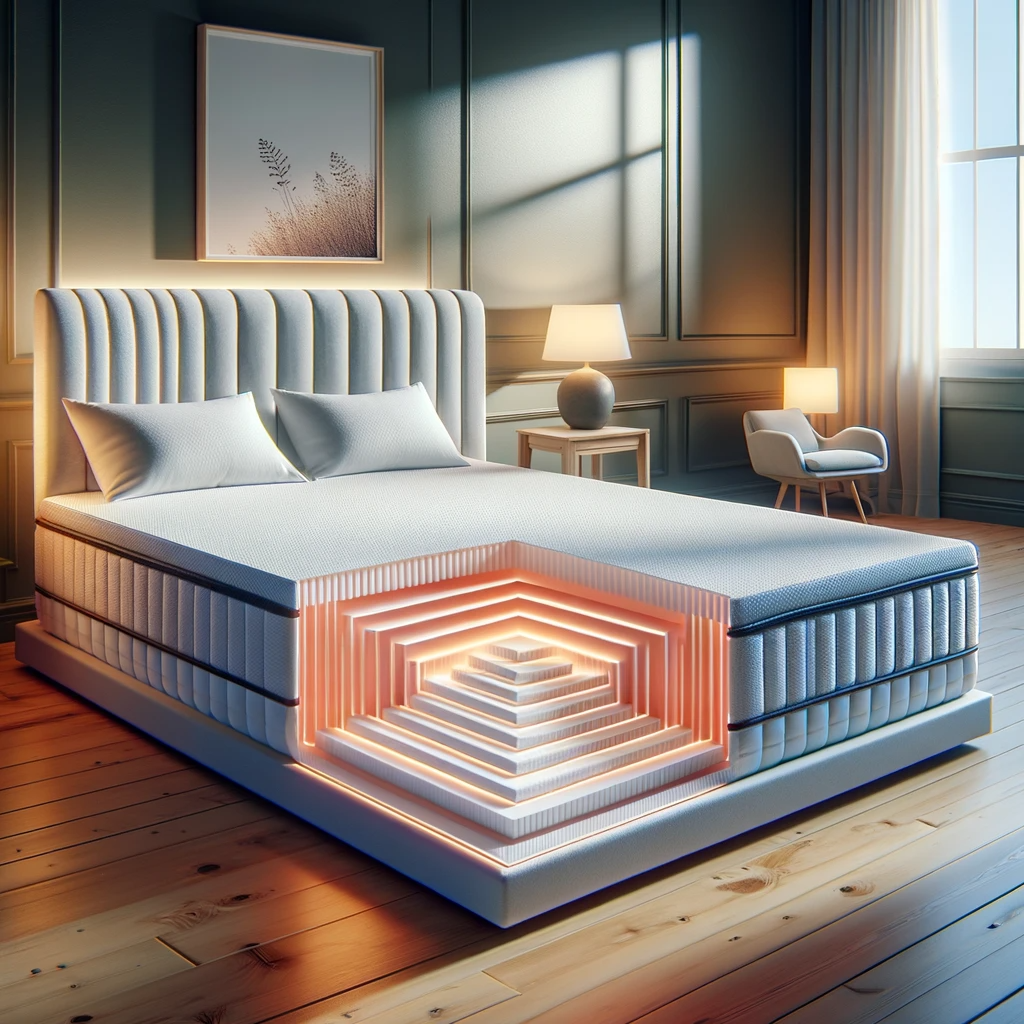
The mattress industry has witnessed a remarkable transformation, driven by technological innovations aimed at enhancing sleep quality. These advancements not only improve comfort but also address a wide range of sleep-related issues.
Memory Foam Technology: One of the most significant innovations is the development of memory foam. Originally designed for NASA aeroplane seats, memory foam has revolutionised the mattress industry. Its viscoelastic properties allow it to conform to the body's shape, providing exceptional support and comfort. This material has become a staple in the industry for its ability to distribute weight evenly and reduce pressure points.
Reflex Foam Mattresses: Reflex foam is another innovation that has gained popularity. Known for its resilience, reflex foam provides excellent support and longevity. Unlike memory foam, reflex foam bounces back quickly to its original shape, making it an ideal choice for those seeking a firmer sleeping surface.
CoolSense Foam Mattresses: Addressing the issue of overheating during sleep, CoolSense foam mattresses incorporate materials that help regulate temperature. This technology ensures a cooler, more comfortable sleep by dissipating heat and moisture away from the body.
Pocket Sprung and Hybrid Mattresses: The introduction of pocket sprung and hybrid mattresses marked a significant evolution in mattress design. Pocket springs work independently to provide targeted support, while the combination with foam layers offers a balance of comfort and support. These hybrid designs cater to a wide range of preferences, providing the benefits of both traditional and modern mattress technologies.
The Role of Technology in Customisation: These technological advancements have been instrumental in the shift towards personalised sleep solutions. By offering a variety of materials and firmness options, manufacturers can create mattresses that cater to specific needs, from orthopaedic support to luxury comfort.
In essence, the technological innovations in mattress design represent a leap forward in our quest for the perfect night's sleep. These advancements not only enhance the sleep experience but also open up new possibilities for personalization, ensuring that everyone can find a mattress that suits their unique needs.
Impact on Health and Lifestyle: The Benefits of Advanced Mattress Technology
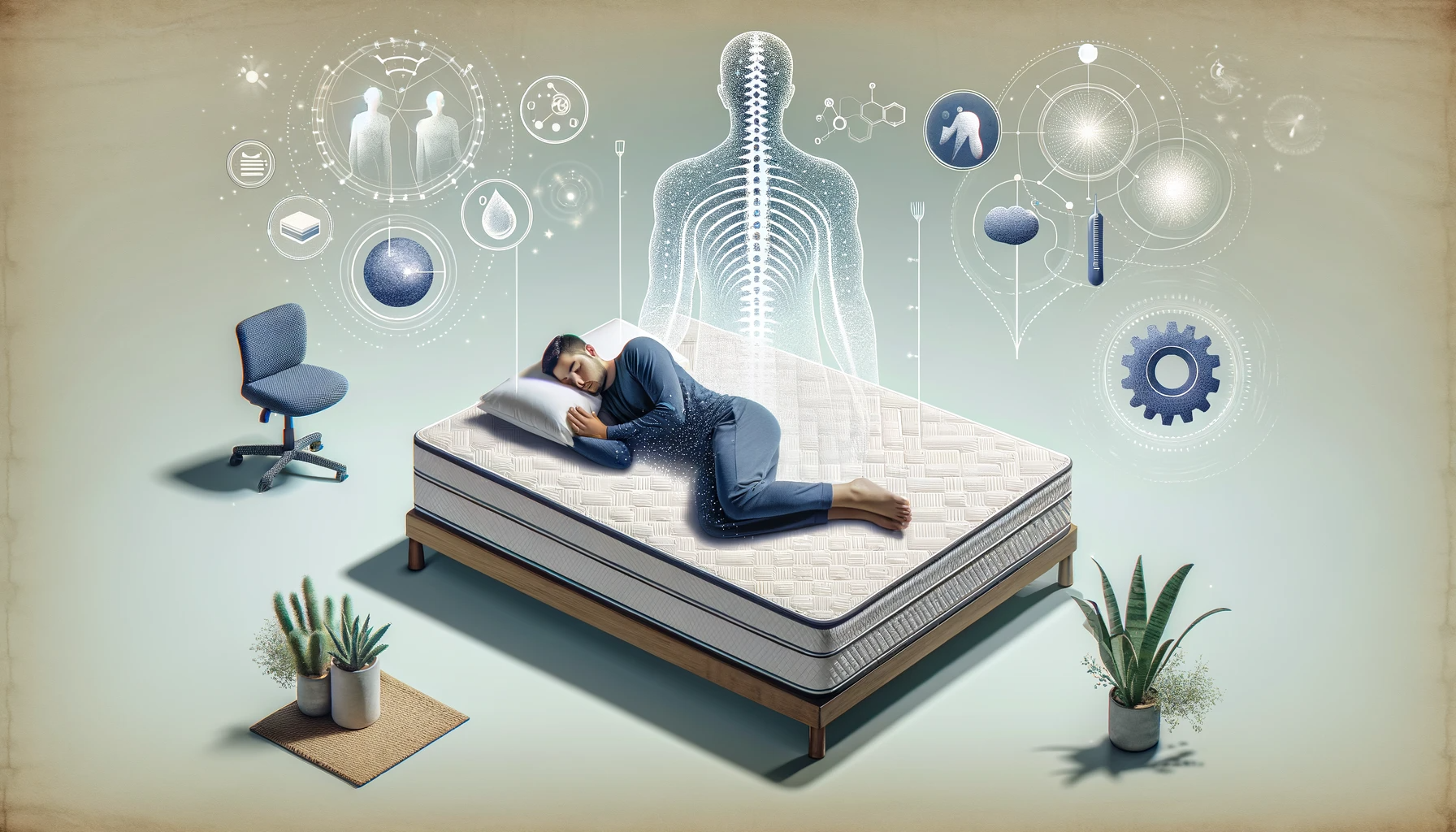
The connection between sleep quality and overall health is well-established, and the role of mattress technology in promoting better sleep is increasingly recognized as crucial. The advancements in mattress design are not just about luxury; they're about fostering better health and well-being.
Enhancing Sleep Quality: A well-designed mattress can significantly improve sleep quality. Technologies like memory foam and CoolSense foam adapt to the body's shape, reducing discomfort, and minimising sleep disturbances. This leads to deeper, more restful sleep, essential for physical and mental rejuvenation.
Addressing Health Concerns: Modern mattresses, especially those tailored for specific health conditions, can have a profound impact on well-being. For instance, mattresses with adequate support can alleviate back pain, while those with hypoallergenic materials can benefit people with allergies.
The Psychological Impact: There's also a psychological component to consider. A comfortable and supportive mattress can reduce stress and anxiety associated with poor sleep, leading to a more positive outlook and better mental health.
Customization for Lifestyle Needs: Today's mattress technology also caters to diverse lifestyle needs. For active individuals, mattresses that provide better recovery through enhanced support can be beneficial. For the elderly or those with mobility issues, mattresses designed for ease of use and comfort can significantly improve quality of life.
Long-Term Benefits: Over time, the benefits of a quality mattress extend beyond just a good night's sleep. Improved sleep can lead to better overall health, including a stronger immune system, improved mood, and even a lower risk of certain chronic diseases.
In conclusion, the impact of advanced mattress technology on health and lifestyle is profound. By offering customised solutions to meet individual needs, modern mattresses play a pivotal role in enhancing both physical and mental well-being, proving that a good night's sleep is a cornerstone of a healthy lifestyle.
Future Trends: What's Next in Sleep Technology?
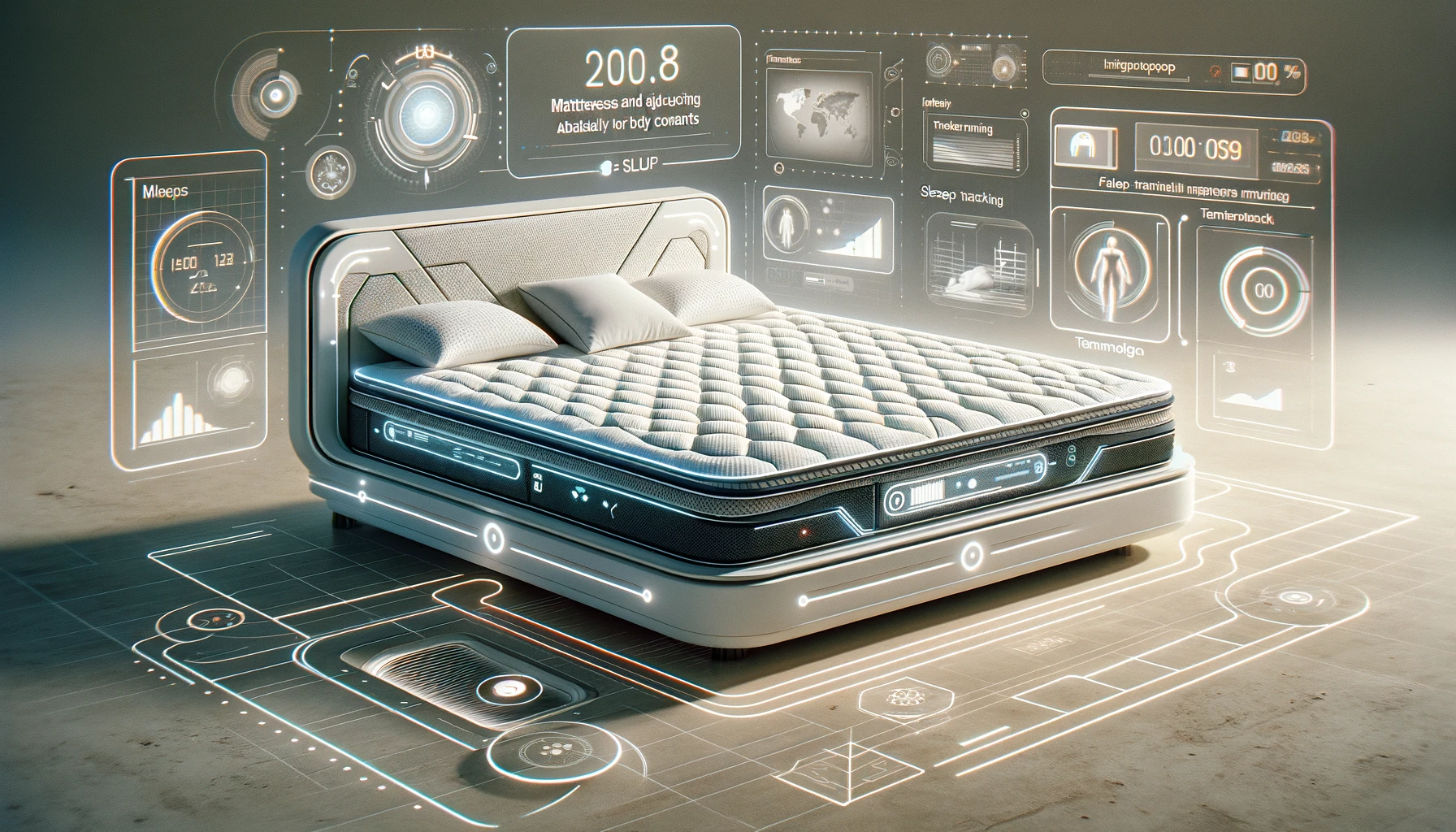
As we look to the future, the mattress industry continues to evolve, with emerging trends promising even more personalised and technologically advanced sleep solutions.
Smart Mattresses: The next frontier in mattress technology is 'smart' mattresses. Equipped with sensors and AI, these mattresses can monitor sleep patterns, adjust firmness dynamically, and even regulate temperature based on real-time body heat analysis. This technology represents a leap towards a fully integrated sleep experience that not only improves comfort but also provides valuable insights into sleep health.
Sustainable Materials: There is also a growing emphasis on sustainability in mattress manufacturing. Eco-friendly materials and production processes are becoming increasingly important to consumers. The future will likely see more mattresses made from organic, renewable resources, and recyclable materials, aligning with the global push towards environmental responsibility.
Advanced Customization Options: As personalization becomes more sophisticated, we can expect to see a wider array of customization options. This might include mattresses with adjustable zones for different body parts, or even models designed for specific lifestyle needs, such as mattresses for athletes focusing on muscle recovery.
Integration with Health and Wellness Apps: Another exciting development is the integration of mattresses with health and wellness applications. Imagine a mattress that not only tracks your sleep but also communicates with your fitness tracker, offering recommendations for improving sleep based on your daily activity levels.
The Role of AI and Machine Learning: AI and machine learning are set to play a significant role in the future of mattress technology. These tools can analyse sleep data to provide personalised recommendations, automatically adjusting mattress settings for optimal comfort and support.
In conclusion, the future of sleep technology is bright, with innovations focusing on personalization, health, and sustainability. As we continue to understand more about the science of sleep, the mattress industry is poised to transform our night's rest into a high-tech, health-enhancing experience. The mattress of tomorrow will not just be a place to rest; it will be a tool for enhancing life quality, one night at a time.
